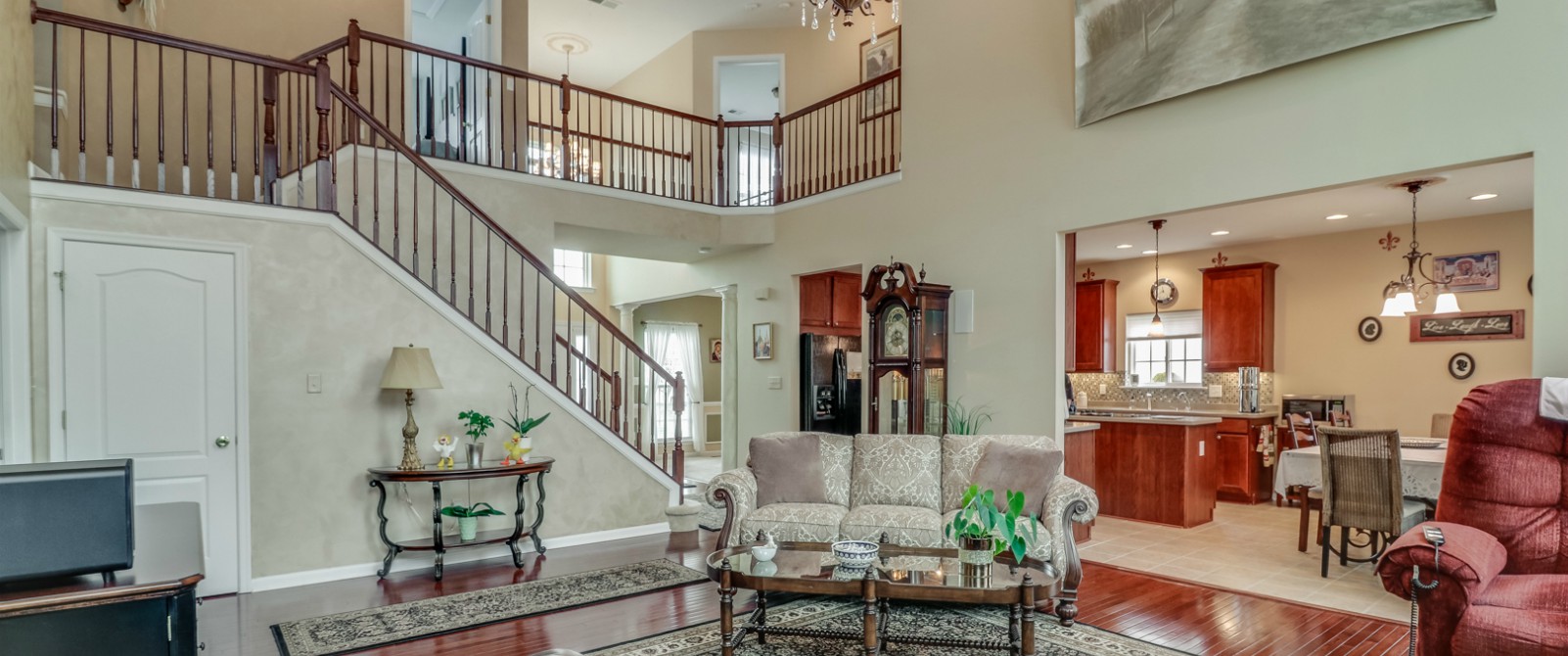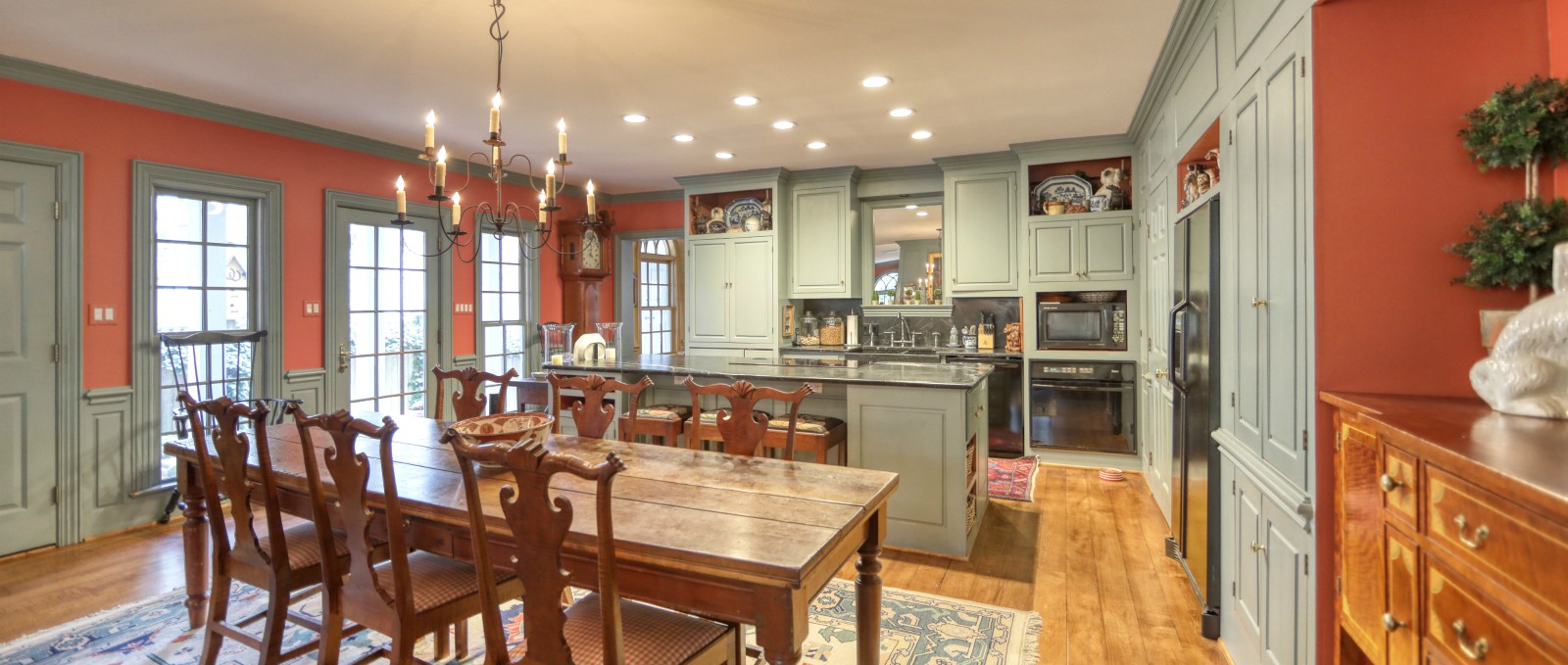Getting the Right Amenities
But do you need it? Various house toys weigh in.
Of course a basement waterfall and grotto is a practical and useful addition to any home. That’s pretty much the only thing standing between you and the playboy lifestyle you’ve always dreamed about, right? But who’s going to clean it?
It’s easy to fall in love with certain features of a home, only to find out those same features, in the long run, are your least favorite. Here are a few common ‘extras’ and a quick assessment of their relative values.
1. In-floor Heating
Also referred to as radiant heat, in-floor heating is a brand new invention. Well, except that the Romans did it a couple thousand years ago by channeling hot air under the floors of their villas. And Frank Lloyd Wright did it in the thirties with hot water, but other than that . . .
- For: In-floor heat comes in two primary forms: hot water heat and electric heat, and there are many advantages. The dramatic energy savings promised shouldn’t prompt you to ask for a decrease in salary just yet, since the more popular hot water radiant heat usually requires a second hot water heater and won’t shave too much off of your bill, but there are some notably appealing elements to in-floor heat in general. Radiant heat is just that – even and consistent, without the up-and-down temperature shifts associated with most conventional heating systems. It’s also silent and invisible, with no bulky radiators or even register vents ruining the feng of your shui. Radiant heat also won’t dry the air, and won’t have you hopping about looking for your slippers on a cold morning.
- Against: In-floor heating systems are still considered a luxury, and can add a fair bit to the value of a home. They are new, and potential long-term issues have not been entirely worked out. A handful of people also are leery about the prospect of piping a significant amount of water throughout their cherished home for fear of potential leakage. All relatively minor concerns.
- Assessment: Find someone with in-floor heating who doesn’t love it. I dare you.
2. Backyard Pool
It’s the quintessential luxury item that announces once and for all that you are a big dog, even in parts of the country like this one where it can only be used about ten minutes per year. It is the swimming pool. From pools that are little more than big pits of standing water to jewel-encrusted infinity pools that usually adjoin large bodies of water, pools were once the thing. Are they still?
- For: A 2004 4-state NAR study found that having a pool increased property values from 8 to 15%. The idea of kicking back all summer with a piña colada, sitting next to the lapping water with friends can be quite attractive. And rightfully so.
- Against: Safety issues have not been blown out of proportion by the media. Pool deaths happen all the time, there’s no getting around that fact. Pools are expensive to maintain, even without hiring a pool cleaner, and are a lot of work. As beautiful as a pool can be when it is maintained properly, it can be an eyesore if it is not. A pool tends to negate having any significant usable space for a backyard. Am I missing anything?
- Assessment: The issues involved with owning a pool can be overcome, and many people enjoy having a pool very much. You just have to want one really badly for it to be worthwhile.
3. Dream Kitchen
Kitchens do cool things these days. Appliances paneled to look like cabinets, an extra tap above the stove for filling large pots of water, $15,000 pounded-copper range hoods, and 460 different countertop materials . . .
- For: Kitchens are finally being designed with maximum utility in mind. When shopping for a home, focus on the kitchen – it is where you will likely spend a great deal of your time, and the room in which every party tends to congregate. Before you fall in love with that Kohler faucet, however, analyze the kitchen’s layout from a purely utilitarian standpoint. Is the magic triangle of sink-stove-fridge arranged conveniently? Are cabinets and other storage in logical places? Is there sufficient light? And most importantly, is this a space you will feel comfortable and happy in? Don’t underestimate the importance of a functional and attractive kitchen.
- Against: Be careful not to fall in love with the impermanent fixtures in a kitchen. While those glass-front, backlit uppers may brilliantly display the seller’s Royal Daulton bone china, will your mixed collection of garage sale Melmac have the same effect? Likewise, if your idea of cooking is heating up last night’s pizza, perhaps space would be better used elsewhere.
- Assessment: The kitchen is the hub of virtually any home. Don’t underestimate its importance.
4. Activity Rooms
This is an overly broad categorization, of course, but activity rooms like workshops, games rooms, and exercise rooms tend to hold common appeal – and common drawbacks.
- For: Having the right setup for a particular activity can be inspiring. Having a single power tool in each room of your house and each corner of the garage and shed is not exactly the ideal situation for building that crib you started on for your daughter and are determined to finish before the birth of you granddaughter. Likewise, if you have the latest elliptical trainer and weight set in a room next to your bedroom with a 12 foot plasma TV facing it, perhaps you will find that six-pack after all.
- Against: If you can’t make a dovetail joint, all of the tools in the world will not give you that knowledge. If you haven’t lifted anything heavier than a handful of pork rinds in the last decade, a workout room will likely soon become just a TV room with uncomfortable seating. Unreasonable expectations usually develop into unreasonable decisions.
- Assessment: Your home should inspire you and will, to a certain extent, dictate your lifestyle. Be rational in your decisions, however, and aim for versatility rather than rooms that are locked in to a particular use that may not be as useful in the future.
The Bottom Line
With all of your dream home features, try to let reason prevail (or at least get a word in edgewise). You may absolutely worship the tumbled marble rainforest shower with the heated towel rack, but it will be of little comfort every morning and night when you are cursing the home’s lack of closet space. It is often the most boring attributes of a home that will give you the most pleasure.
Now, off to luxuriate in my rainforest shower. I had to take out the bedroom to install it, but that’s okay, I don’t mind sleeping in the kitchen...
- Details
- Written by The Nick Carter Team
Buying Your First Home?
With interest rates low, many renters are starting to think about purchasing a home of their own. While simple rental cost vs. mortgage cost comparisons can be very attractive, buying a home is a serious commitment, and there are many factors to consider:
1. How long you plan to live in the home.
Selling a home costs money. If you potentially may have to move in the short term, the value of your home may not have appreciated enough to cover the costs of buying and selling.
The length of time it will take to cover those costs depends on various economic factors. Average appreciation tends to sit at around 5% per year. In this case, you should plan to stay in your home at least 3-4 years to cover buying and selling costs. The real estate market can be particularly volatile, however, and dramatic swings up and down are not uncommon.
2. How long the home will meet your needs.
What features do you require in a home to satisfy your lifestyle now? Five years from now? People tend to remain in homes longer than they initially intend, primarily due to the work and expense associated with moving. Therefore it is worth considering a home with room to grow. Could the basement be turned into a den and extra bedrooms? Could the attic be turned into a master suite? Having an idea of what you'll need will help you find a home that will satisfy you for years to come.
3. Your financial health - your credit and home affordability.
Is now the right time financially for you to buy a home? Would you rate your financial picture as healthy? Is your credit good? While you can always find a lender to lend you money, people with poor credit tend to pay far more to borrow.
Some say you should refrain from borrowing as much as you qualify for because it is wiser not to stretch your financial boundaries. The other school of thought says you should stretch to buy as much home as you can afford, because with regular pay raises and increased earning potential, the big payment today will seem like less of a payment tomorrow. It is, however, important to stay within your comfort zone. Purchasing a house involves many up-front and ongoing costs, and the stress of worrying about those costs often outweighs the satisfaction that may come from owning a slightly nicer home.
To determine how much home you can afford, talk to a lender or go online and use a home affordability calculator. Good calculators will give you a range of what you may qualify for. Then call a lender. While some may say that the "28/36" rule applies, in today's home mortgage market, lenders are making loans customized to a particular person's situation.
The "28/36" rule means that your monthly housing costs can't exceed 28 percent of your income and your total debt load can't exceed 36 percent of your total monthly income. Depending on your assets, credit history, job potential, and other factors, lenders can push the ratios up to 40-60% or higher. While we're not advocating you purchase a home utilizing the higher ratios, it’s important for you to know your options.
4. Where the money for the transaction will come from.
Typically, homebuyers will need some money for a down payment and closing costs. However, with today's broad range of loan options, having a lot of money saved for a down payment is not always necessary - if you can prove you are a good financial risk for a lender. If your credit isn't stellar but you have managed to save 10-20% for a down payment, you will still appear to be a very good financial risk to a lender. High-ratio mortgages can be a good option for those who haven’t managed to save a large chunk of money (who has?), but naturally, these have additional costs associated with them.
5. The ongoing costs of home ownership.
Maintenance, improvements, taxes, and insurance are all costs added to a monthly house payment. If you buy a condominium or townhouse, a monthly homeowner's association or maintenance fee will be required. If these additional costs are a concern, you can make choices to lower or avoid these fees. Be sure to make your REALTOR® and lender aware of your desire to limit these costs.
If you are still unsure if you should buy a home after making these considerations, you may want to consult with an accountant or financial planner to help you assess how a home purchase fits into your overall financial goals.
- Details
- Written by The Nick Carter Team
Avoid Common Buyer Errors
Shopping for a new home is an emotional experience. It is, however, also a business transaction, and must be treated as such. Three of the most devastating things that can go wrong are:
- Paying too much
- Losing a dream home to another buyer
- Buying the wrong home
When you have a systematic plan before you shop, you’ll be sure to avoid these costly errors. Here are some tips on making the most of your home purchase:
1. Get the information you need
What price do you offer a seller? Is the seller’s asking price too high? Is it a deal? Your own research is important, as is the assistance of a REALTOR®. A professional REALTOR® can offer an unbiased opinion on the value of a home, based on many factors and a great deal of information. Without knowledge of the market, your offer could be too much. Or worse, you could miss out on a great buying opportunity. Hire the right person and trust that person to represent your interests.
2. Buy YOUR home
What do you need and want in a home? Sounds simple, but clearly identifying your needs and bringing an objective view to home shopping leaves you in a much better position. How much space do you really need? Too small and you may feel like you live in constant clutter. Too big and maintenance may become too daunting. Outline all of your priorities, and work on finding not just a great home, but a great home for you.
3. Check the title
Before you sign any document, be sure the property you are considering is free of all encumbrances. As a part of his or her services, a REALTOR® can supply you with a copy of the title to ensure there are no liens, debts, undisclosed owners, leases or easements against the title.
4. Update the survey
Before the purchase is completed, an updated survey is essential. This report will indicate boundaries and structural changes (additions to the house, a new swimming pool, neighbor’s new fence which is extending a boundary line, etc.), and will guarantee that you are indeed getting what you pay for.
5. Minimize the unexpected
For $300 - $500, a professional inspector will conduct a thorough inspection of the home. Their expertise can mean the difference between uncovering major flaws before or after you own a home. Make the final contract subject to the report’s findings.
6. Get pre-approved
It only takes a few days to get financing pre-approval. When you are shopping for a home, this gives you more power. A seller is more likely to consider an offer from a serious buyer.
7. Remember additional costs
Besides the funds for the purchase of a home, you’ll need funds for items such as loan fees, insurance, legal fees, surveys, inspections, etc.
8. Take a deep breath
Before you sign, ensure that all documentation clearly reflects your understanding and conditions of the transaction. Has anything been forgotten? Don’t rush. You could lose money, financing, or even the sale if you attempt to push things through too hastily.
- Details
- Written by The Nick Carter Team
How to get THE home at THE price.
Whether you are buying your first home or your fifth, the process can be an emotional, time-consuming venture. Feeling that in the end, you made the right decision and got a good deal can make all the difference.
As with most major decisions, the amount of work and research you undertake before you start shopping can have a dramatic effect on how well you do in the end.
1. Do you really need that backyard tennis court?
Everyone can picture their ideal home. If you haven’t thoroughly prepared yourself prior to viewing houses, chances are you will find what you think is your ideal home, and will wind up paying too much for it.
It is essential to treat the buying process in a slightly detached manner. Those who fall in love with houses usually pay too much.
That’s why it’s recommended that you develop a list of needs and one of wants. When looking at houses, make sure that they cover all of your needs – things like adequate space, a good neighborhood, perhaps a garage – and then have fun with items on your wants list. Treating the process in a regimented manner will help you make a rational, informed decision.
2. Get pre-approved
Visit your lending institution prior to shopping. Be sure to get a mortgage commitment in writing. Being pre-approved gives you a solid price range, and lets your REALTOR® and potential sellers know you are serious and not just a browser.
3. Get the right people behind you
Buying a home is a complicated process, with many people involved. Having the right people on your side can make a big difference. An experienced, dedicated, and knowledgeable REALTOR® can put a team of advocates, including lenders, lawyers, home inspectors and movers, on your side immediately.
4. Communicate
The more you share with your Realtor®, the better he or she will be able to represent you. Letting your representative know exactly what you’re looking for, in terms of needs/wants, price range, and location, can eliminate unnecessary trips to unsuitable homes and that focus can help ensure that you wind up in the right home.
5. Location, location, location
It’s still true. The desirability and resale value of your home depend on location more than any other factor. People want a desirable community that includes character, quality of schools, access to work, major transportation arteries, recreational facilities, etc.
On your viewing trips, take a careful look and ask the following questions:
- How does this home compare to others in the neighborhood?
- Are yards fenced?
- Are there many children playing in the streets?
- Are the front and back yards and the exteriors of the homes properly maintained?
The less expensive houses in a better area tend to appreciate faster than the most expensive houses in a less desirable area.
Additional factors that affect the property value of a home include traffic, sounds, smells, and zoning bylaws, among many others. Be objective. Be sure you are completely satisfied with the neighborhood. If you choose a neighborhood with problems, you likely won’t get as much as you hoped when it comes time to sell.
6. Use your REALTOR’s® knowledge
Your REALTOR® is trained in all aspects of real estate, including understanding supply and demand, economics, and the neighborhoods of the city in which they practice. A professional REALTOR® can do much of the work for you, by reviewing your needs, reviewing available properties, and making an informed match. A comprehensive knowledge of the available homes in your neighborhood is one of your REALTOR’s® strongest assets. With the aid of computerized systems, a REALTOR® is notified within hours when a home becomes available.
7. Pay attention to red flags
When evaluating a home, be sure you know the difference between acceptable and unacceptable problems. Cosmetic items like peeling paint, worn carpeting, or unattractive wallpaper can be easily remedied, and can be used as negotiation items, as there will be costs involved in updating the home.
Major problems, however, are clearly red flags. Look for items such as major foundation cracks, water damage, outdated electrical systems, and inadequate plumbing. These items could be too expensive to remedy to make the home a worthwhile investment.
8. Hire a home inspector
A home inspection is an inexpensive way to gain peace of mind, and guard your pocket book. A proper inspection will cover all areas of the house including foundation, electrical, heating, plumbing, floors, walls, ceilings, attic, roof, siding and trim, porches, patios, decks, garage and drainage. A professional inspector can give you an objective view of the property, with a written report, indicating the present condition and items that will need repair.
9. Be cautious with fixer-uppers
Sometimes, a fixer-upper can be purchased below market value, and once sufficient repairs are made, can be sold at a significant profit. However, not all fixer-uppers will bring in the profits you might expect.
Consumers often overestimate their level of dedication to doing extensive renovation work, and underestimate the costs associated with such work. A wall that needs to be replaced can often lead to the discovery of faulty plumbing, electrical, or other major undertakings. Your Realtor® and home inspector are your best allies when it comes to cost-benefit analyses.
10. Consider your future needs
A move can be a major undertaking. Take a good look at your current lifestyle and consider your future. Will you need extra space for a home office, a child, or perhaps a child moving back home? Perhaps it may be easier and less expensive if you purchase a home that meets these needs now, rather than moving intto a larger home a few years down the road.
11. Proceed quickly
When you’re ready to buy, act. Good properties sell! This is especially true given the current state of most real estate markets. However, when you work with a REALTOR®, you have access to the latest technology. As part of the MLS and Agent Handshake networks, a REALTOR® has access to properties within hours of when they are listed.
Technology works to your advantage. Many REALTORs® now have personalized websites which allow you to sign on as a client, and receive notification of new listings via email. You save time and effort, and you can view only those homes that come closest to meeting your needs.
12. Clarify Relationships
In any real estate transaction, be very clear about who is working for whom, and what the relationship represents. Unless otherwise stated, an agent represents the seller in transactions for the sale of a home. This agent, as part of his or her fiduciary duty, must ensure that the seller’s (and not your) position is represented throughout the entire process. Get a buyer’s agent on your side, or ensure that someone is acting in your best interests.
13. Ask for a written CMA
A Comparative Market Analysis (CMA) is an analysis of comparable homes in a given neighborhood. It shows you the sale prices of these homes, along with asking prices of other homes in currently on the market in the area. A REALTOR® can request this report for any home and neighborhood. Ask for it in writing. With this valuable document, you’ll have solid, reliable information about how fairly a home is priced compared to its real market value.
14. Know the seller
Understanding a seller’s reasons for moving could work to your advantage during negotiations. For instance, a seller who has been transferred to another city may be more motivated to sell than someone who is still shopping for a new home. A vacant house, or a house that has been on the market for several months and has been reduced in price, could also provide the opportunity for lucrative negotiations.
15. Keep it impersonal
Conversely, information could be used to your detriment. Information about your mortgage, size of down payment, move-in deadline, or circumstances for buying could be used to the seller’s benefit in negotiations. While you want your REALTOR® to know these details, maintain your poker face and keep your cards hidden with the sellers and their agents.
16. Measure twice, sign once
While you definitely want to move quickly once you’ve made the decision to purchase, you don’t want to cave in to pressure for a quick close. Someone who is trying to pressure you into buying a home is likely doing so for a reason. Make sure the reasons you buy a home are your reasons, not theirs.
17. Exercise your negotiating skills
Even if you prefer not to haggle, it’s worth it, especially when it’s your home and one of your biggest investments. Most people expect to haggle over the price. There is always room for negotiation, and your REALTOR® should be a professional negotiator.
18. Avoid bidding wars
In some cases, the seller’s REALTOR® may use scare tactics to rush the sale or increase the price. Falling for this trap could cost you money. If there is another buyer, or some other reason this pressure is being applied, whoever wins also loses because they tend to overpay. Let reason be your guide, not passion.
19. Get it in writing
Legally, sellers must disclose all known material defects of a property. Ask for this in writing. Also be sure to consider the ramifications of these defects. Will they be costly down the road? Are they “serious” defects?
20. Be aware of hidden costs
While REALTORs® often tempt first-time buyers with rent/mortgage comparisons, there is more to a home than simply the mortgage. You will be responsible for other items including mortgage insurance, appraisal fees, legal fees, inspection fees, transfer taxes, title insurance, inspections, property tax, increased bills, etc. Your REALTOR® can give you a good idea of the costs associated with buying a home that are beyond its final negotiated price.
- Details
- Written by The Nick Carter Team












